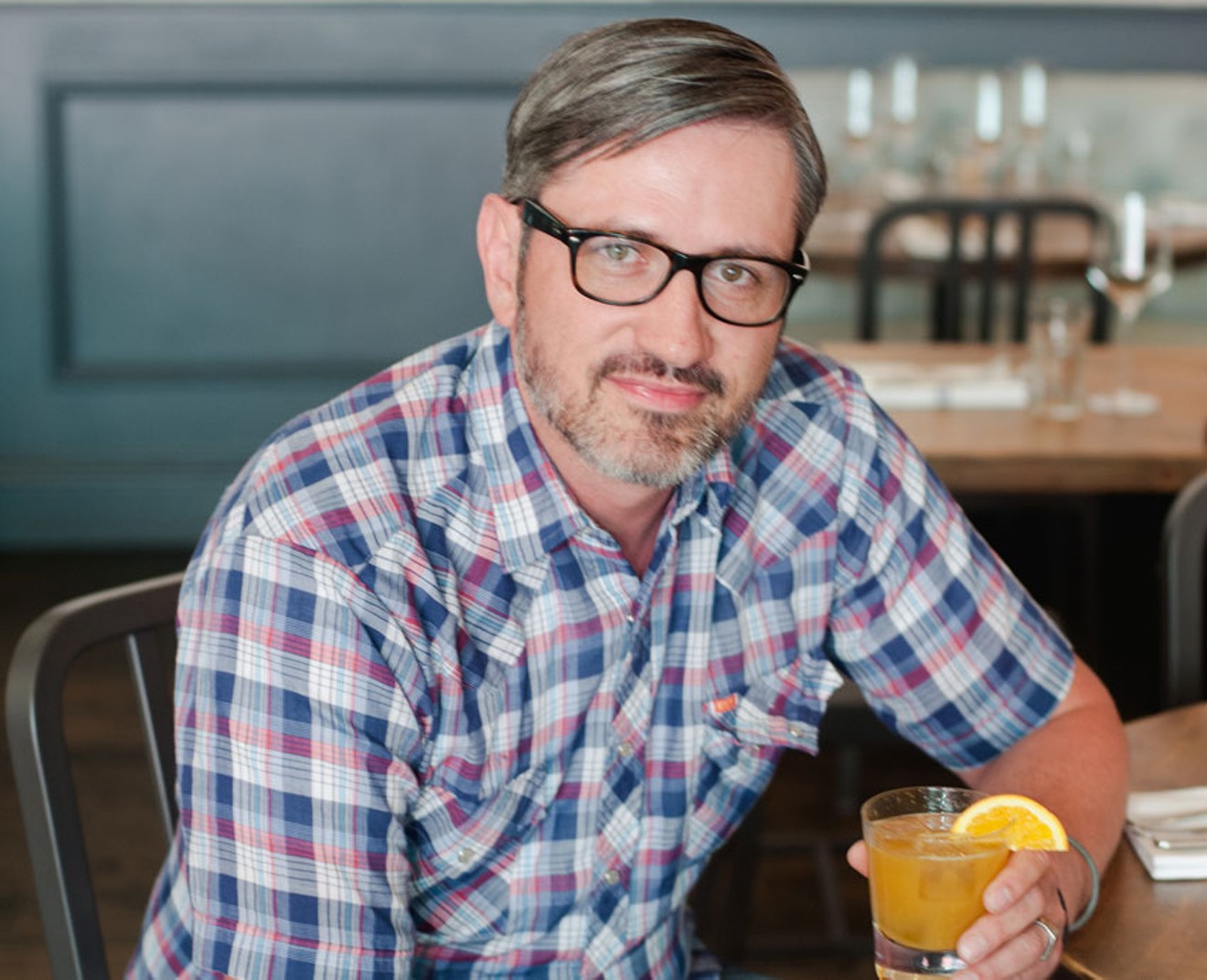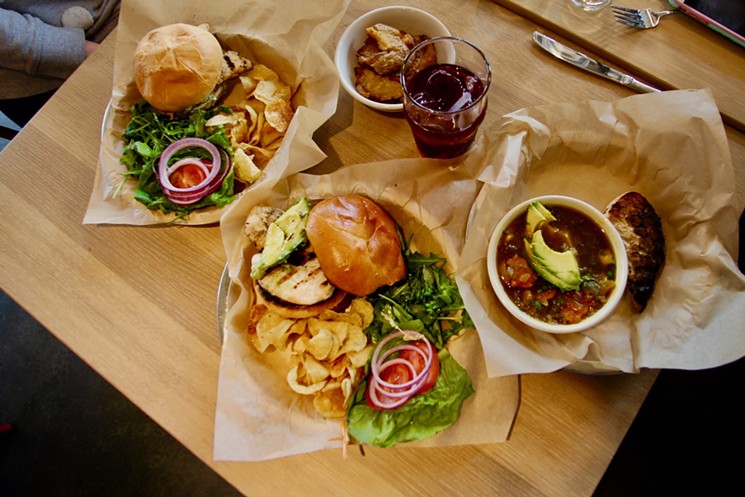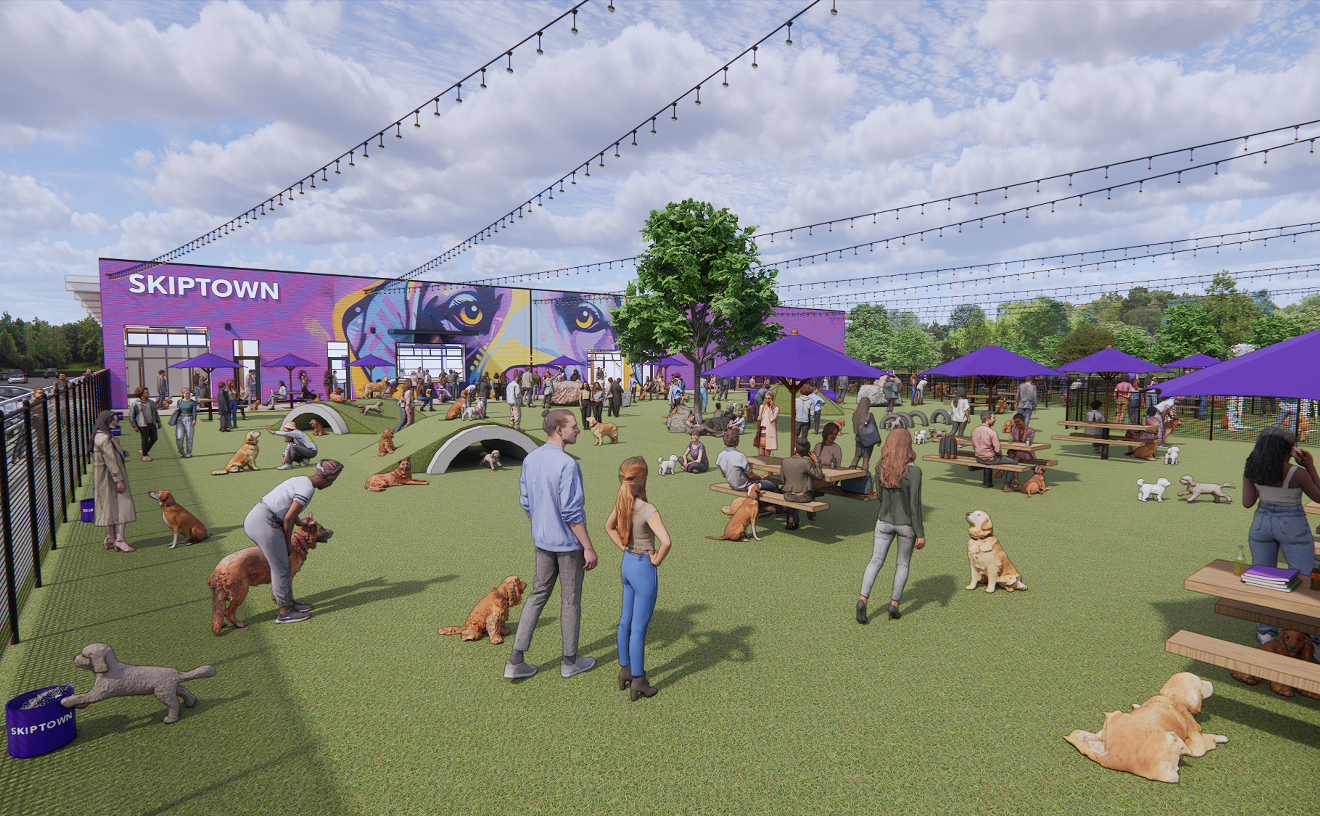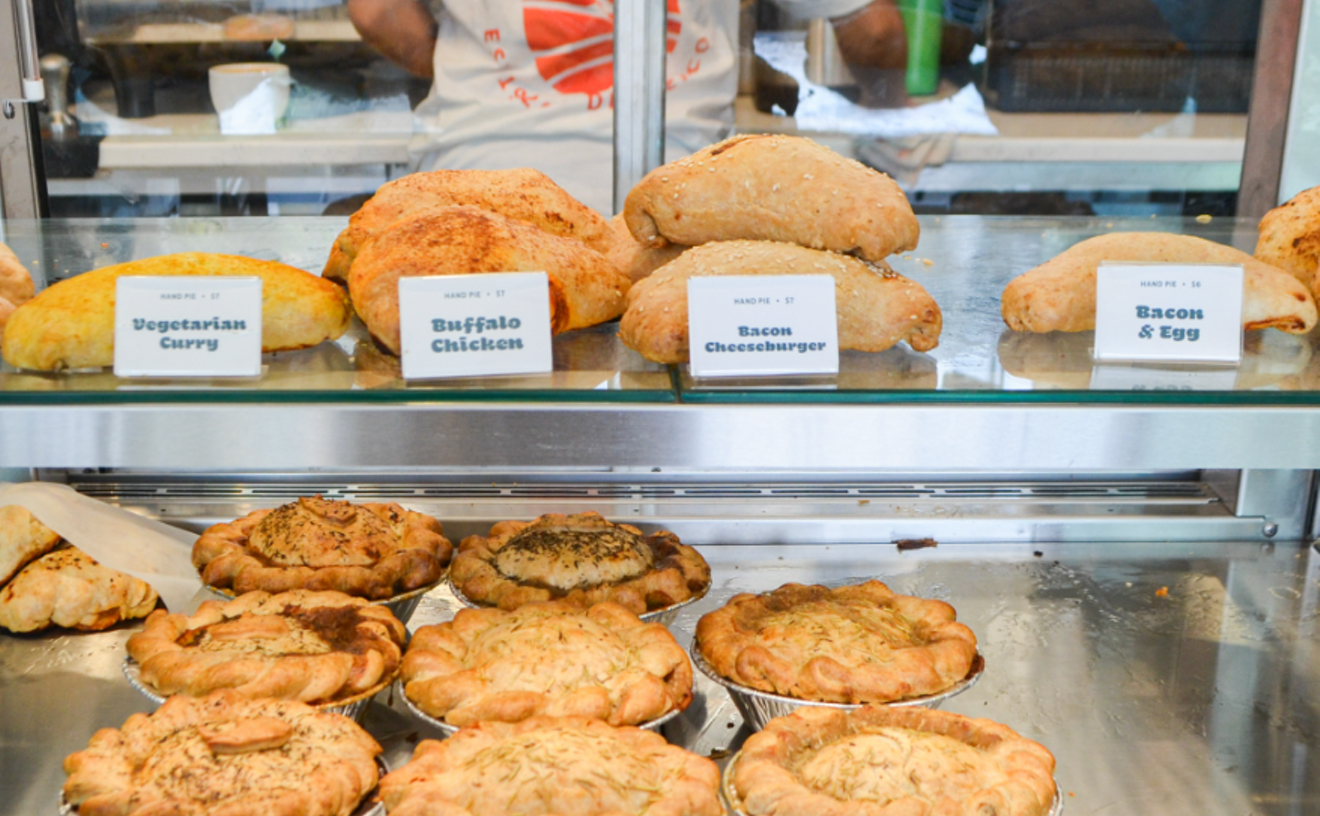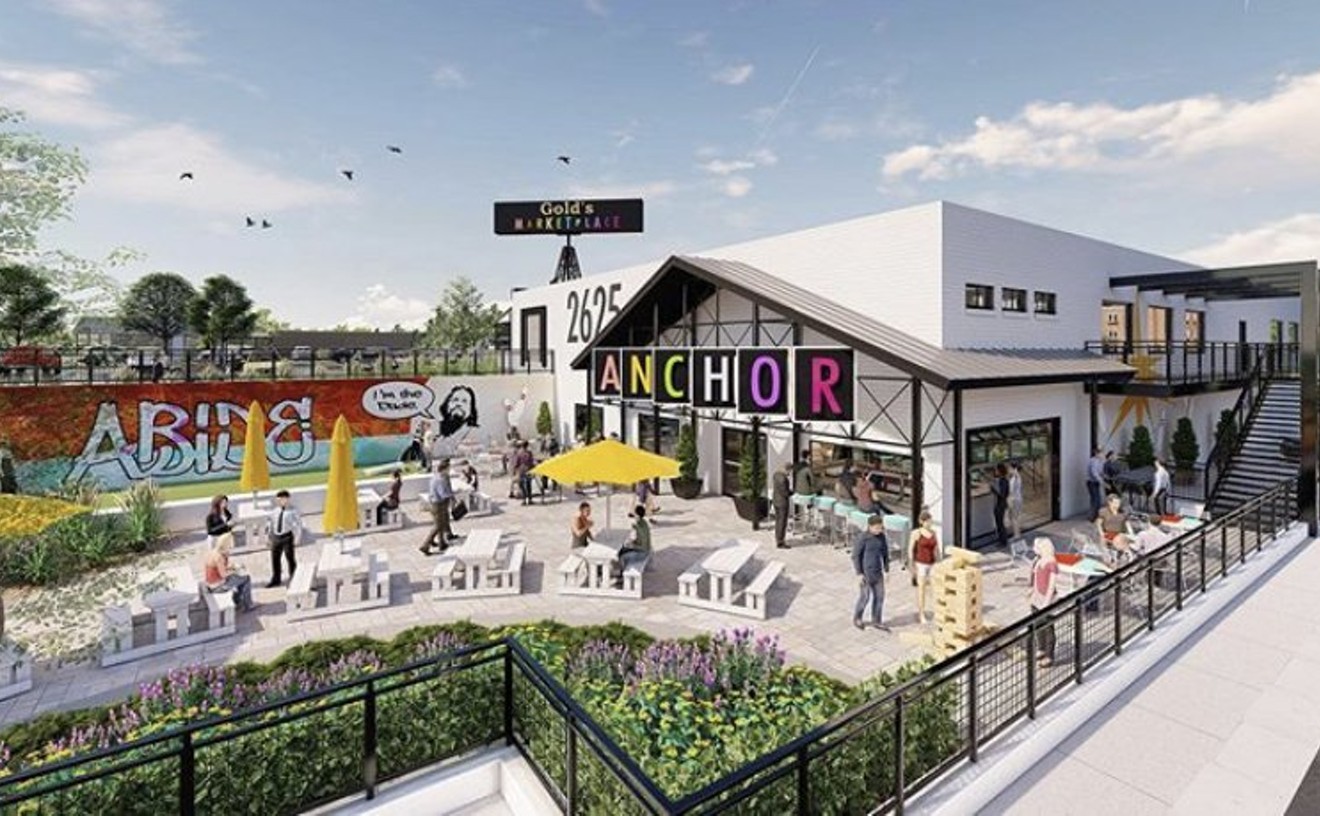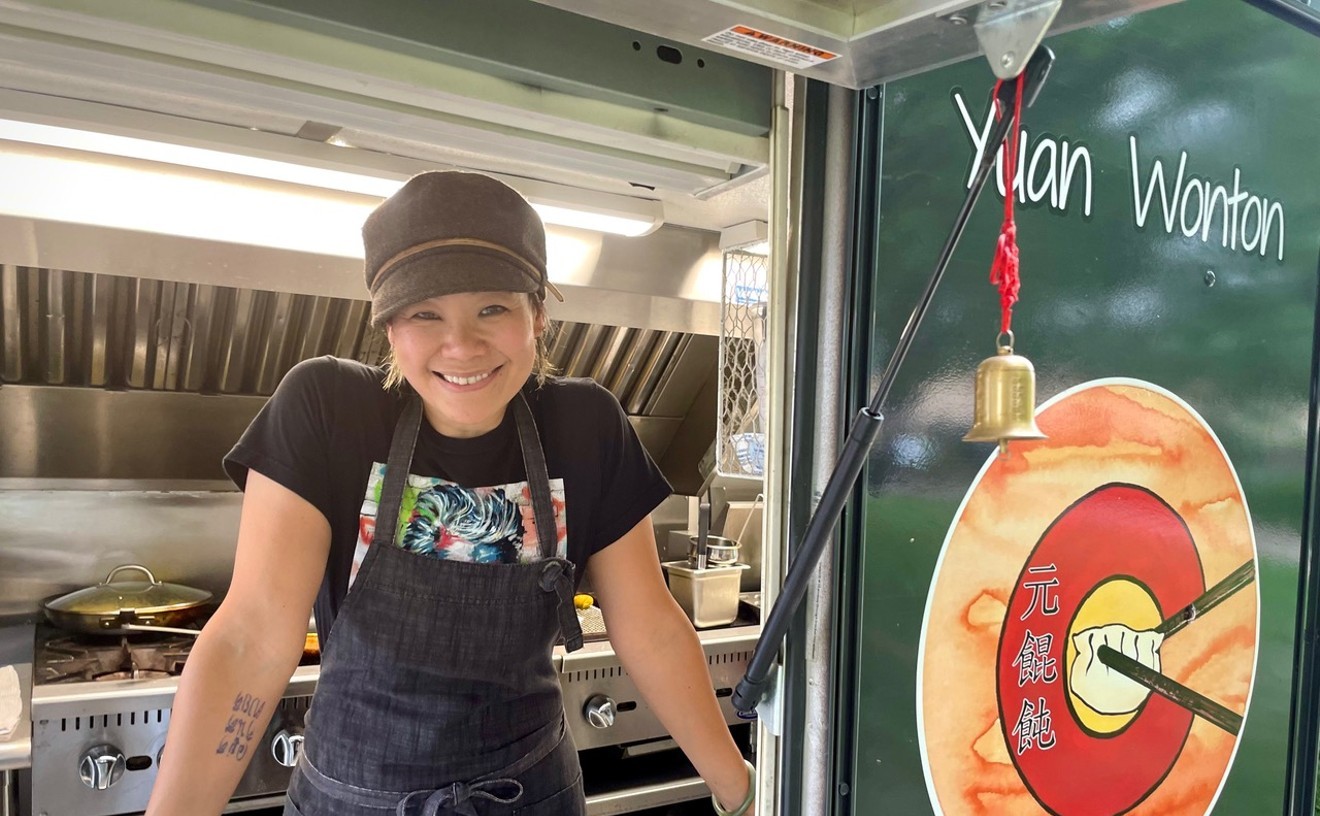Since the Kitchen opened its first Next Door location in 2011, the concept has evolved into what the company calls urban-casual restaurants, specializing in wholesome and sustainably sourced food at accessible price points, delivered fast. For the past two years, guiding the growing group of eateries to its current state — and priming it for expansion (in addition to a Stapleton outlet, which just opened, the company will open a location in Longmont and has plans to take Next Door beyond Colorado’s borders) — has been the job of culinary whiz Merlin Verrier. Below, Verrier talks about how and why he made the transition from Michelin-starred dining to fast-casual food, detailing a produce-filled California childhood, struggles with addiction, and cooking for President Barack Obama along the way.
Merlin Verrier: I grew up on the central coast of California, in Santa Cruz. It was a really rich produce region; we went to farmers’ markets as kids. Santa Cruz is twenty miles from the artichoke capital of the United States and fifty miles from Gilroy, the garlic capital. That exposed me to a lot of ingredients most kids don’t get to see. In the springtime, we ate Dungeness crabs and artichokes because they were cheap and great. It wasn’t until later that I thought, holy crap, that is really special stuff.
My mom was born in Indonesia, so we grew up with her cooking Southeast Asian food. In my house, ketchup was called tomato ketchup, and ketchup was really tomato mayonnaise. Sambal olek, peanut sauce and satay were all regular things; I was always exposed to different stuff. And then being in such a produce region, there was a huge population of Hispanic migrant workers. The cuisine of the area was Mexican, and it’s still some of the best I’ve had in my life. So I was raised on this mix of Indonesian and Mexican food and fresh vegetables. I did a lot of camping with a group of boys I’m still close with, and I was always the camp cook.
I moved to Boulder at nineteen and tried to go to college, but it didn’t click. I literally took two classes, finished one and said I can’t go to school. My parents were supportive of me staying in Boulder, but they were unwilling to support me while I lived [there]. So I started at the Philly Junction as a dishwasher, where I cleaned toilets. I worked at Alfalfa’s and a couple of other restaurants, and then I went to culinary school in Portland. After that, I moved to Summit County and lived there for seven years while I jumped around. I worked with Max MacKissock at the Great Northern Tavern — he’s one of my best friends to this day. I moved down to Denver and got a job at Rioja in 2005; I’m actually the one who introduced Jen [Jasinski, Rioja’s chef-owner] and Max [they’re now married]. I started as a line cook, and I was the first promotion to a manager position. Moving from the mountains and working for Jennifer was amazing. I still consider her my first mentor, which is always the most important. The integrity that lady has is like nothing I’ve ever seen. You don’t have a successful restaurant empire without being that driven and attentive to details. That really changed me. I became sous-chef, and then I left to work for Richard Sandoval.
I went out to do a remodel for him in Chicago, and I fell in love with a girl. When I came back to Denver, I ended up hitting the wall in my drug and alcohol abuse, and I decided to get sober and move to Chicago and be with that girl. That was a defining moment in my career: understanding the reality of substance abuse in this industry and realizing I couldn’t do that anymore. When I got back to Chicago, I wanted to work with better chefs, and I landed on the Graham Elliot opening team, and I eventually helped [the restaurant group] secure six total Michelin stars. We didn’t open that restaurant trying to be Michelin, but getting a Michelin star and having a handful of items on that menu meant that the hard work had paid off. None of those people knew me as a drinker or partier. All the dedication I learned from Jennifer started to come to fruition.
With Graham, I cooked for President Obama on his 49th birthday. Oprah Winfrey was at his table. I plated all of his food. That was one of the coolest things I’ve ever done. Graham and I are still the culinary mayors of Lollapalooza: The promoter asked us to have a booth and to cook for the Kings of Leon, who were headliners that year. The next year, they asked us to curate Chow Town. We started bringing in brick-and-mortar restaurants to take over the booths, which really changed the landscape of festival food; we were really the first ones to do that. We cooked for Eminem twice, and I served him his first lobster. The next night, we cooked for the Foo Fighters. Dave Grohl said, “Oh, I got a text from Eminem about the lobster corn dog I need to try.” It was like, holy fucking shit, what’s going on?
Eventually, I had the opportunity to move to Connecticut and be a partner with Graham in a restaurant there. I had a 20 percent stake, and we were doing Graham’s style of restaurant: whimsical food, loud music in the dining room. It was great, just not what Greenwich, Connecticut, wants. I learn more when I fail than when I succeed, though, so it was a great learning experience. I helped some friends out there with their pizza restaurant, then started looking. I interviewed with Paul Kahan in Chicago and for the Next Door culinary director role, and was also in talks with Uchi in Austin. I decided Next Door was the best and right move for my family. That girl from Chicago is now my wife, and we have two kids — and I love Colorado more than anywhere I’ve ever lived. A lot of the things Next Door stands for are things I believe in, and I liked the opportunity to grow a brand.
I had this epiphany: While I was serving two-star Michelin food, we’d do eighty covers on a busy day, which was comparable output to this [Next Door] kind of restaurant, but you’re only cooking for one person. I got to totally dictate someone’s dining experience through seasonality, weather and different things, but it’s only approachable by a small part of America. Next Door is the opposite: We’re at a price point that’s approachable by 99 percent of America, and we’re doing 900 covers per day. But we do it all with the ethos of a fine-dining chef. What’s good for the community is good for us. Fifty percent of our product is local, which means it comes from within a 350-mile radius, and that’s everything from our bathroom soap to our whole-cow program to our quinoa, which is being grown down in Trinidad. Being able to support your local community, getting vegetables at the height of seasonality — that’s what you strive for as a chef. And the fast, fun and affordable mantra that Next Door has is really appealing.
I started here in March 2015, and our three restaurants were like three islands, and the home office was a continent. The islands only talked to the continent, and the continent didn’t have a voice to talk to everyone. There was never a flow. So my first year was about building that communication. Then we could take the best way to do beet burgers from Boulder, and the best way to do kale chips at Union Station, and get everyone to do the best version of everything on the menu. But without that communication, we weren’t going to be able to do shit.
We can’t change our menu hyper-seasonally. We can’t run things for six weeks and then change. This is more about foundation and buying power. This is a menu that’s nutrient-driven, heavy in the proper technique, but executed really fast — we have six-minute table times. We just launched a new menu at Next Door. There are 42 items on the menu, and 22 have changed. This is the biggest change the restaurant’s ever seen. I pushed the creativity, but all with direction from [owners] Hugo Matheson and Kimbal Musk, and with input and buy-in from the other chefs. It’s much easier to make a big change when they’re part of the process; it makes it easier for them to help everyone get through the change that’s going to happen.
Growing up where I did, we were fortunate to not have to garden, because produce was readily available. Wild fennel grows everywhere in California — it’s just unbelievable. For underserved communities to understand where real food comes from — to provide education, to teach people how to garden, to provide choices they’d never have been provided with — it’s incredible to be part of a company that wants to do that. Kimbal’s vision is amazing. He constantly says he gets inspiration from us, but we’re all inspired by him and wanting to make the earth a better place. It’s amazing to see kids drag soil across a blacktop, get seeds, poke holes in the soil, put in the seeds, water them and, weeks later, it becomes a vegetable. Most kids have no idea that exists. It’s great that our restaurant group is associated with something like that. It’s incredible that our nonprofit goes into cities before we open retail outlets. The community understands who we are — that we’re coming to be part of the community and make it better.
Anyone who struggles with addiction has to be a humble person. At a certain point, realizing you have weaknesses has strengths, and accepting what those are propels you further. I know I’m not the greatest cook or most creative human, but I also know that if I have ten cooks in a room, we’re going to make something better than what I could have made on my own. I’ve always been collaborative. Cooking in its own right is a humbling thing. You want to nurture fellow humans through well-sourced food. I’ve been recognized enough throughout my career that I don’t need to be recognized through my cooking anymore. Thomas Keller talks about lineage. You’re only as good as your last meal, but if I can teach and empower young cooks who go on to be successful, that makes me way happier than anything right now.
Next Door Boulder
1029 Pearl Street, Boulder
720-542-8159
Next Door Glendale
658 South Colorado Boulevard
393-757-0878
Next Door Union Station
1701 Wynkoop Street
720-460-3730
Next Door Stapleton
10155 East 29th Drive
720-930-4366
Reach all locations at nextdooreatery.com.
[
{
"name": "Air - MediumRectangle - Inline Content - Mobile Display Size",
"component": "12017618",
"insertPoint": "2",
"requiredCountToDisplay": "2"
},{
"name": "Editor Picks",
"component": "17242653",
"insertPoint": "4",
"requiredCountToDisplay": "1"
},{
"name": "Inline Links",
"component": "18838239",
"insertPoint": "8th",
"startingPoint": 8,
"requiredCountToDisplay": "7",
"maxInsertions": 25
},{
"name": "Air - MediumRectangle - Combo - Inline Content",
"component": "17261320",
"insertPoint": "8th",
"startingPoint": 8,
"requiredCountToDisplay": "7",
"maxInsertions": 25
},{
"name": "Inline Links",
"component": "18838239",
"insertPoint": "8th",
"startingPoint": 12,
"requiredCountToDisplay": "11",
"maxInsertions": 25
},{
"name": "Air - Leaderboard Tower - Combo - Inline Content",
"component": "17261321",
"insertPoint": "8th",
"startingPoint": 12,
"requiredCountToDisplay": "11",
"maxInsertions": 25
}
]

